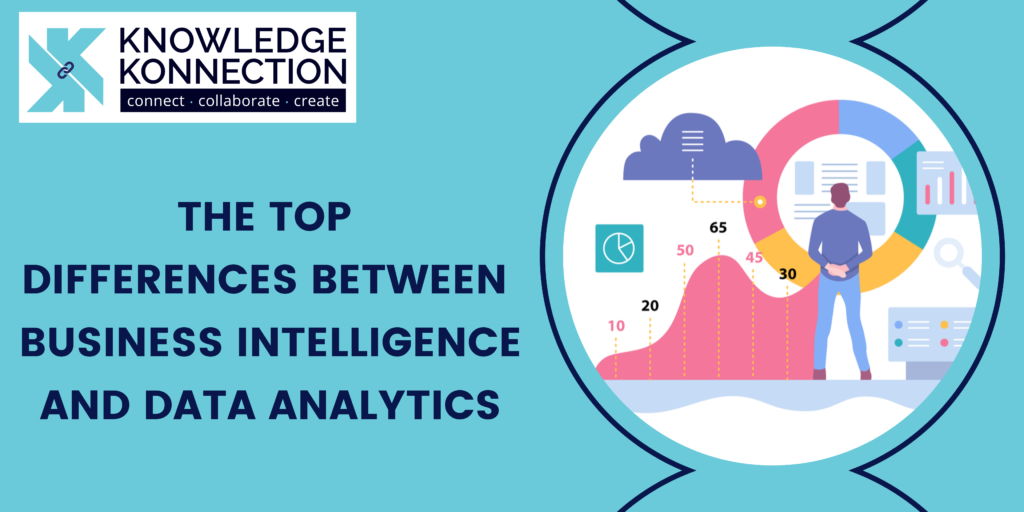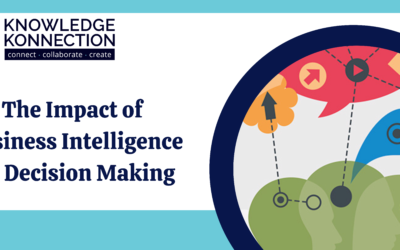The Top Differences Between Business Intelligence and Data Analytics

Data Analytics and Business Intelligence are two of the most vital aspects of enterprise operations and management. A business is primarily concerned with its overall performance when it focuses on its processes. As an idea, Business Intelligence (BI) involves recording, analyzing, and manipulating data for the purpose of improving business performance. Generally, analyzing statistics from across a business explains the overall performance of the enterprise in the past and displays the general performance of its operations. BI encourages errorless statistical operations that are credible and concrete. The report gives business executives insight into the information of the company so they can analyze its experience in terms of financial growth and other aspects. To method BI, there is a fixed gear that assists one extract records approximately an enterprise and it’s whereabouts until date. One of these tools is Dundas BI. When it comes to Business Operations, BI is way more useful than every other tool, for it allows enterprise officers to assess the company’s overall performance and examine the disasters that obstructed the growth process. Additionally, it must be kept in mind that one should continuously look at the Business Intelligence equipment that’s being utilized instead of straight away limiting it to a few platforms. When it comes to Business Operations, BI is way more helpful than whatever else as it offers a possibility for the company officers to evaluate the company’s overall performance along with introspecting about the disasters that helped to impede the development process.
The Data Analytics strategy includes transforming raw data into significant records, deriving patterns from them, comparing them, and sooner or later modifying the patterns to boost business. Data analytics provides a rich resource of information that, through its analysis of statistics and its attempt to predict incremental changes, can help an organization to announce key changes and set them in motion for higher levels of success. DA (Data Analytics), or Business Analytics, includes predictive analysis, which uses past trends to predict future growth. Business Intelligence and Data Analytics are unique standards.
- 15 Proven Tips for Boosting Your Power BI Abilities and Success
- “Collaborative BI, Enhanced Analytics” The New Keywords – Power of Business Intelligence redefined.
- 5 Ways Business Intelligence Can Help Your Company Succeed
Data Analytics vs Business Intelligence
Tools and The Techniques
Fourth, BI and DA use different kinds of gear and strategies in their strategies. Data Analytics is more about looking to counteract the choices made during Business Intelligence and avoiding those that are more likely to lead to losses, while Business Intelligence is about making decisions from raw information collected. This distinction has led to a variety of equipment and strategies that promote the processes of Business Intelligence and Data Analytics. As Business Intelligence includes the gear that deals in statistics collection, generating scoreboards and reports, Data Analytics offers in gear and strategies that facilitate statistics evaluation at the same time as changing statistics into significant chunks. Moreover, Data Analytics specifically contains technologically superior gear to offer manners to green evaluation. Data Analytics gear has evolved over the years as increasingly more tech-savvy gear and strategies get designed from time to time.
The Innovations and Operations
Data Analytics and Business Intelligence differ in that the former revolves around the operation, while the latter is more inclined toward innovation. Because Business Intelligence focuses on collecting raw data and comparing it with the past development of an organization, it focuses on business operations rather than innovation. The aim of Data Analytics, however, is to transform and analyze uncooked information in the direction of set future patterns and styles, which makes it viable for business authorities to take part in their operations in an innovative way. A business intelligence tool, rather than a data analytics tool, presents statistics in an uncooked format so that they can be combined into a set of rules that allow us to extract middle styles. Business Intelligence lags behind in this aspect, whereas Data Analytics provides businesses with the means for their employees to feature innovation to their enterprise operations management. This distinction demarcates the capability of the 2 standards which, as we’ve understood, is pretty distinct. Furthermore, this distinction additionally highlights the significance of the 2 standards which might be imperative but unbeatable.
From Time Being
Business Intelligence and Data Analytics differ in that Business Intelligence is more inclined to look into the future, whereas Data Analytics is more inclined to look forward. Data analytics mainly analyzes data based on conditions that have already occurred within the business. Business Intelligence, on the other hand, examines data primarily based on historical data. Nevertheless, Data Analytics tends to focus on future patterns that may emerge in the near future. Additionally, this results in the conclusion that Business Intelligence is less risky than Data Analytics. Innovation involves risks, making Data Intelligence distinctive from Business Intelligence in this respect. As a result, BI is more useful with regard to settings beyond the enterprise’s operations that ultimately produce statistics for DA. Furthermore, BI is particularly disposed toward the historical information of an enterprise that, in one way or another, differentiates it from DA, which includes enforcing modern traits within the future for a higher increase.
Questioning and Decision-Making Process
A business intelligence system is ready to provide insight into the enterprise and its associated operations. However, Data Analytics consists of studying statistics and wondering about things that have been persisting throughout the years. BI and DA are differentiated based on their concepts of decision-making and wondering. As enterprise employees move directly to counteract the characteristics they have been practicing within the history of the enterprise, Data Analytics leads to strategic decisions that are frequently in interaction with each other. One of the most important differences between Business Analytics and Business Intelligence is that they differ from each other in such a way that allows us to better recognize the standards.
Goals
Incorporating our thinking method within the way the two standards work is the most critical, but also the most final, variation. In this way, even as Business Intelligence focuses more on achieving wishes which already existed in enterprise objectives, Data Analytics helps one to establish a desire for the development of management operations based on the forms that the enterprise should follow. The Business Intelligence field is also distinguished by its quick implementation capabilities in comparison to Business Analytics, which includes long-term techniques to increase business efficiency.







Recent Comments